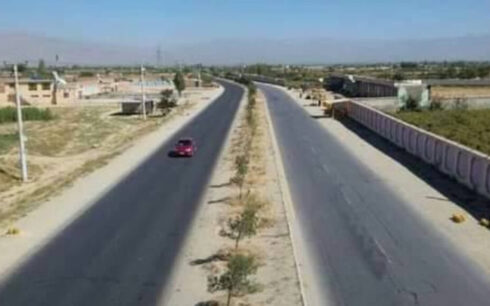KABUL, Afghanistan — Amid reports of rising internal tensions, Abdul Kabir, the Taliban’s minister for refugees, has rejected the idea that leadership is open to all, emphasizing the authority of their reclusive leader, Hibatullah Akhundzada.
Speaking at a gathering in Kabul on Thursday, Feb. 20, Kabir insisted that Akhundzada remains the recognized leader and that Taliban officials are bound to follow him under all circumstances.
“The Islamic Emirate is like a large house, and not everyone can run it,” he said. “Not just anyone can become Amir-ul-Mu’minin, prime minister, or minister of defense or interior. We have appointed a leader, and we follow him. However, we all maintain oversight of this house.”
His remarks come at a time when the position of the Taliban’s deputy prime minister for political affairs has remained vacant for more than a month. Kabir, who previously held the role, has continued to operate from that office while also serving as minister for refugees, declining so far to vacate his former position in the Sapidar Palace.
While Taliban officials have publicly denied any internal discord, they have repeatedly reaffirmed their loyalty to Akhundzada.
Mullah Abdul Ghani Baradar, the Taliban’s deputy prime minister for economic affairs, echoed this sentiment in a speech in Kabul on Thursday, stating that “this system was established on the basis of internal obedience and respect. Obedience is a fundamental principle of the Islamic Emirate and will continue under all circumstances.”
Yet reports suggest that divisions within the group run deeper. Some Taliban figures have been spending extended periods in the United Arab Emirates, officially for medical treatment or leisure, but sources indicate these absences may be linked to tensions with the supreme leader. Abdul Hakim Shara’i, the Taliban’s justice minister and a close associate of Akhundzada, recently traveled to Dubai, reportedly with the leader’s approval.
Analysts warn that internal rifts could become more severe.
“These emerging disputes are deeply rooted and could prove even more significant than past divisions—whether during Afghanistan’s communist era, the mujahideen period, or the 20-year republic,” said political analyst Aziz Rafiee.
One of the central points of contention is the consolidation of power in Kandahar, where Akhundzada is based. Last week, in the absence of Interior Minister Sirajuddin Haqqani, Akhundzada replaced the Taliban police chief in Kandahar, further fueling speculation of power struggles within the Taliban.
Sources also report that, under orders from Kandahar, a number of security officials in Kabul have been reassigned in recent weeks, reflecting the growing influence of Akhundzada’s inner circle in shaping key government positions.





